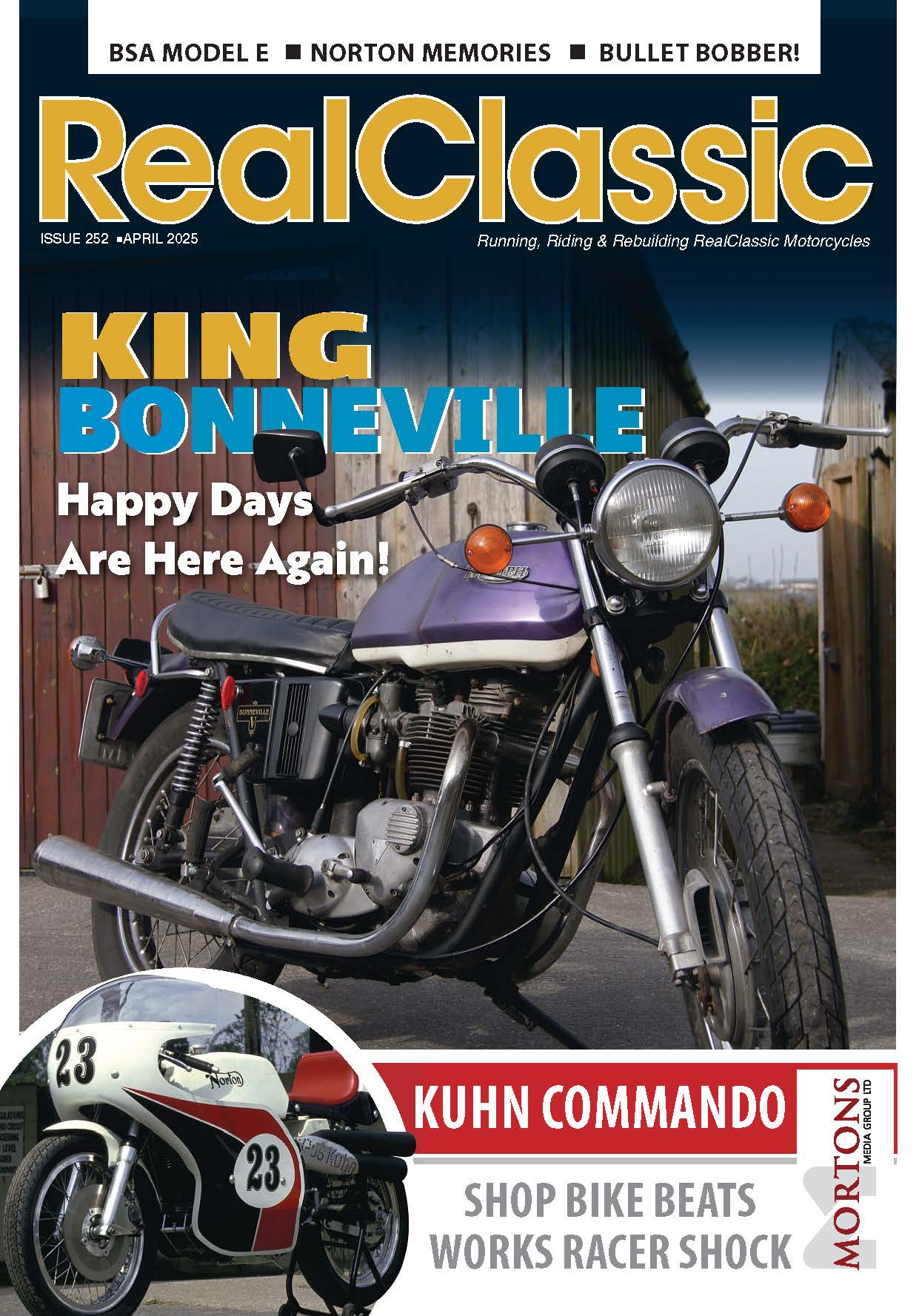While it’s winter in the northern hemisphere – which makes short-circuit motorcycle racing a little tricky – the sun is shining on the other side of the world. Stuart Francis reports on the classic track action in New Zealand…

The tenth Totalspan CAMS Southern Classic Festival in New Zealand attracted nearly 200 individual entries at the end of last year. The event caters for 28 classes of solo machines and outfits, from pre-war vintage to superbikes, Grand Prix two-strokes and a development class. The machines race in nine groups assembled from bikes with similar performance, creating full grids and entertaining racing. The event also hosts the NZ classic bike and sidecar grand prix events, run as separate races.
The action took place at Levels International Raceway, about 140km south of Christchurch. The 2.4km ‘long motorcycle circuit’ is relatively flat, roughly shaped like a thigh bone with six left-hand corners (two of which are complete 180 degrees), four right-hand bends, a right-hand hairpin, eight short straights and a back straight that’s nearly a 1km long. The riders like the grippy, technically-demanding circuit and the outfit pilots have to work overtime to keep up with the ever-changing direction and the two long, left-handers. The fastest solo machines post laps of just over a minute, while the fastest outfits circulate in a little less than 1.5 minutes. Earth banks around the circuit provide spectators with excellent views of the track action.

The standout group was the sidecars with an unprecedented 21 entries, many from the North Island. These were spread across four classes and ranged from a 1960 Matchless G12 to a 2018 BLR Kawasaki. Of the nine makes which took part, the Yamaha XS650-based outfits were the most popular closely followed by BMWs. All the sidecars went out in a single group. The large number provided plenty of entertainment and occasionally created logjams – the clerk of the course had to remind them that the grass was not part of the circuit! CAMS took a novel approach to dividing the classic outfits, separating them on wheel size to level the playing field.
The Period 72 Senior Class had 13 entries spread across six different makes, with Honda CB750s being the most popular machines. Tyler Lincoln riding Peter Lodge’s inordinately quick 1972 ES2 Norton won the class by winning three out of the four races, and only lost the fourth race with a puncture. Tyler was challenged hard by Heath Botica on his 1972 R100 BMW in the first two races. Vince Burrell on his 1972 V Sport Moto Guzzi came second in the third race and won the last race.

The New Zealand Classic Grand Prix Period 72 Open race had fourteen entries spread across 10 makes. Tyler Lincoln on the ES2 Norton won with Warren Landon coming second on his 1968 Ducati 350 single against a field of machines which, on paper, should have easily beaten both of them. Tyler’s best lap was 1min 12secs with 197kph through the speed trap, all on a pushrod Norton single!
The Period 72 Junior Class attracted 12 entries spread across seven different makes, with Yamaha engines being the most popular. Two superb looking Seeleys, a Seeley Yamaha and a Seeley Matchless G50 competed in this mixed field. The class was won by Warren Landon, with four straight wins on a very fast 1968 Ducati 350 single.

The Vintage Pre War class was doubled in size by late entries with eight girder-forked machines on the grid; one Rudge, four Velocettes and three Indians. Rhys Wilson on the lone Rudge TT Replica narrowly took Phil Price on the Mk8 KTT Velocette in all four races.
Phil Price’s team Velocette was there in force, racing three machines: 1939 Mk8 KTT, 1932 Mk4 KTT and the Duke Replica 350. The latter is a copy of a rolling chassis built for Geoff Duke when he became a privateer after his time with Gilera. Phil has the engine, built by Bill Lomas, for the original Duke machine. Phil lent Austrian Max Lagger his 1932 Mk4. Despite only having raced Super Motads before and never having ridden a British bike, Lagger finished fourth overall in the Vintage class.

The F4 Bucket class is a development class designed to let young riders learn racing, using small two- and four-stroke engines. The race attracted 18 entries, with the Suzuki FXR150 (a 20bhp 4v dohc single) being by far the most popular. Logan Jackson on his Suzonda took four first places and a second, and Jeff Cameron on his Yamaha took four seconds and a first. Local lad Chris Sutcliffe on his Honda NSR150P blitzed the Development class with five straight wins.
Wandering round the pits is always rewarding with many excellent machines on display but there are always a few that stand out for technical or for aesthetic reasons. The most unusual machine was Marcus Thompson’s 1972 iron head Harley-Davidson outfit. It bristled with unusual features, from the feet-forward seating position to the substantial girder forks. Unfortunately it was withdrawn after two races when a frame fracture was spotted.

The other machine that caught your scribe’s eye was Paul Swanwick’s beautifully prepared Seeley Matchless G50. This rolling chassis was the prototype Mk4 frame, raced by ‘Crasher Croxford’ as the Seeley Works machine. The engine that came with the machine was in a very poor state so Paul fitted a brand new G50 engine so he could go racing.

The bike display had over 40 racing and road machines on show, ranging from a 1922 Indian Scout to a Britten. There were a couple of gems that really stood out, like the superbly restored 1929 AJS 500 and 1929 CN Triumph, and a scooter dressed up as Burt Munro’s streamliner. A swap-meet was added this year which proved successful.

The stand-out competitor this year was Tyler Lincoln who, besides winning the Period 72 Senior Class and NZ Classic GP Period 72 Open on the ES2 Norton, also took a clean sweep in Pre-95 F1 and the NZ GP title for Pre-95 on the Ducati 916. He even found time to be the swinger on Neville Mickleson’s 1960 G12 Matchless outfit.
An ongoing competition is the BikeTranz North Vs South Challenge where nominated riders in each class from each island, accrue team points. Always closely fought, this time the North Island won by a single point.
The CAMS team put on another great weekend. The event was efficiently run, relaxed and friendly, with entertaining racing: a rare combination.

——-
Words and photos by Stuart Francis




